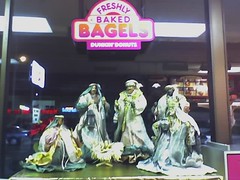Book: Chamber of Horrors
Jargon is tempting. If you're lying, stating the obvious or don't know what you're talking about, jargon provides that extra lift into eloquence and credibility. Why use just one syllable if adding three will make you sound more important? That is the governmental approach to language as detailed in Chamber of Horrors: A Glossary of Official Jargon both English and American (1952: Andre Deutsch Limited, London). The author uses the pen name Vigilans “because he does not want to become the victim of a man-hunt effected by a horde of civil servants," according to the inside jacket cover.
Chimney sweepers become "flueologists," people work not "full time" but "on a full-time basis," and impractical plans are "of a visionary description."
Vigilans writes that this language is "no more reprehensible when used by officials than when used by their subjects." But he did not anticipate how much of it would become common usage. "Purchase," "amount," "conceptual," "background," "communicate" and "consume," all proved largely useless in this book, aren't even recognizable as jargon to most people today. Jargon more than ever now is accessible to all and constantly mingled with common speech, especially as job titles become more pretentious. As Paul Westerberg sang to a "flight attendant" in his song "Waitress in the Sky": "A 'sanitation expert' and a 'maintenance engineer,'/A garbageman, a janitor and you, my dear."
New jargon is easy to create because English verbs and nouns have a wealth of long synonyms. It creeps into common speech because if used right it sounds good, as George Orwell wrote in his essay "Politics and the English Language." A sentence comprising one blocky phrase after another is always suspect; a generally simple one with a little well-placed jargon, though no more useful or effective, will fool most people. Language, Orwell wrote, "becomes ugly and inaccurate because our thoughts are foolish, but the slovenliness of our language makes it easier for us to have foolish thoughts."
Like Orwell, Vigilans targets mostly politicians and bureaucrats, quoting government documents, speeches and debates. He forgives doctors and scientists their use of esoteric language.
Chamber of Horrors is the most readable and funny reference book I've ever seen, except for Ambrose Bierce's The Devil's Dictionary (Oxford University Press, 1999; first published in 1906 as The Cynic's Word Book). Vigilans''entries are laced with wit and exasperation. To help the cause of good English, he shows step by step how to turn convoluted sentences into short, effective ones.
This book should be reprinted. It would be indispensable to writers, reporters and editors who have to dredge for sense in a jargon-flooded world where bluntness is unfashionable.

